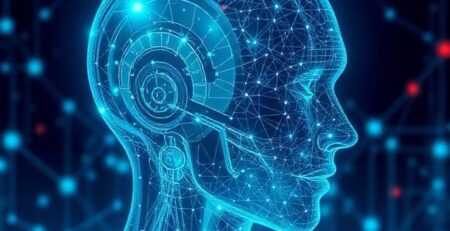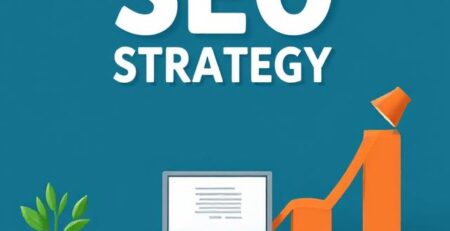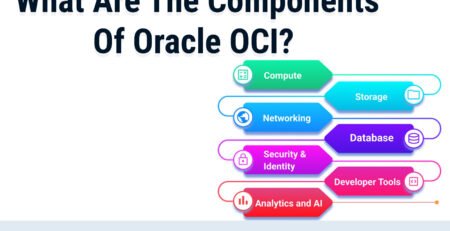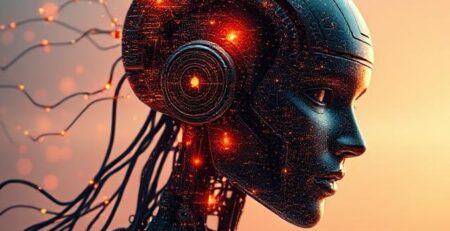The Complete Guide to AI-Proof Jobs: Safest Careers for the Next Decade
The employment landscape is experiencing its most dramatic transformation since the Industrial Revolution. By 2030, artificial intelligence and automation are projected to displace over 300 million jobs globally, fundamentally reshaping how we work and what skills remain valuable. However, this technological tsunami also creates unprecedented opportunities for those who understand which careers will remain safe from AI disruption.
The Historical Context: Why This Time Is Different
Throughout history, technological revolutions have consistently eliminated certain jobs while creating new ones. In the early 1800s, textile machinery displaced thousands of skilled weavers, giving birth to the term “Luddite.” The automobile revolution transformed America’s workforce from 170,000 blacksmiths in 1900 to mechanics, engineers, and assembly line workers.
What makes the AI revolution unique is its unprecedented speed and scope. Unlike previous technological shifts that affected specific industries over decades, AI is simultaneously disrupting multiple sectors within years. Studies suggest that up to 30% of U.S. jobs could be impacted by AI and automation in some capacity over the next decade.
A study by the McKinsey Global Institute reports that by 2030, at least 14% of employees globally could need to change their careers due to digitization, robotics, and AI advancements, highlighting the urgency of understanding which careers will remain secure.
Understanding AI’s Limitations: The Human Advantage
While AI excels at logic, pattern recognition, and structured tasks, it fundamentally struggles with several distinctly human capabilities:
Emotional Intelligence and Empathy
AI systems cannot genuinely understand human emotions, provide authentic comfort, or navigate complex interpersonal relationships. Jobs requiring emotional intelligence, empathy, and human connection remain largely protected from automation.
Creative Problem-Solving and Innovation
Although AI can generate content based on existing patterns, it lacks true creativity, intuition, and the ability to conceptualize entirely new ideas. Roles requiring original thinking, artistic expression, and innovative problem-solving maintain significant human value.
Physical Dexterity and Spatial Awareness
Many skilled trades require fine motor skills, spatial reasoning, and adaptability to unpredictable physical environments. These capabilities remain challenging for robotic systems to replicate cost-effectively.
Ethical Reasoning and Moral Judgment
Complex ethical decisions, moral reasoning, and nuanced judgment calls require human wisdom, cultural understanding, and value-based decision-making that AI cannot authentically replicate.
Unpredictable and Dynamic Environments
Jobs involving chaos, unpredictability, or rapidly changing circumstances favor human adaptability over AI’s preference for structured, predictable tasks.
The Most Vulnerable Jobs: Understanding the Risk
Before exploring safe careers, it’s crucial to understand which roles face the highest automation risk. The jobs most likely to be displaced include:
- Data Entry Clerks – AI can process and input data with perfect accuracy
- Telemarketers – Chatbots and AI voice systems are increasingly sophisticated
- Customer Service Representatives – Automated systems handle routine inquiries effectively
- Basic Salespeople – E-commerce and AI recommendations reduce need for human sales
- Drivers – Autonomous vehicles threaten transportation jobs
- Translators – Machine translation continues improving rapidly
- Junior Software Developers – AI coding tools automate basic programming tasks
- Graphic Designers – AI design tools create professional visuals instantly
Jobs that are most likely to be automated by 2030 include cashiers, telemarketers, data entry clerks, and customer service agents.
The Safest Career Categories: Your AI-Proof Future
Healthcare and Medical Professions
The U.S. Bureau of Labor Statistics projects around 1.9 million job openings annually in healthcare from 2023 to 2033, underscoring its resilience as one of the most stable and AI-resistant job sectors.
Healthcare represents the most secure career category due to its fundamental reliance on human judgment, empathy, and complex decision-making. Emergency medical technicians (EMTs) and healthcare social workers top the list, with 100% public interaction and very low automation risk. These roles require on-the-spot decisions, emotional intelligence, and real-time responsiveness, traits that AI still struggles to match.
Top AI-Proof Healthcare Jobs:
- Physicians and Surgeons – Complex diagnosis, treatment planning, and patient interaction
- Registered Nurses – Patient care, emotional support, and clinical judgment
- Physical Therapists – Hands-on treatment and personalized rehabilitation
- Mental Health Counselors – Therapeutic relationships and emotional healing
- Occupational Therapists – Adaptive strategies and personalized care
- Speech-Language Pathologists – Communication disorders and personalized treatment
- Emergency Medical Technicians – Critical decision-making under pressure
- Healthcare Social Workers – Complex case management and advocacy
- Dental Hygienists – Direct patient care and health education
- Medical Laboratory Technologists – Complex analysis and quality control
Skilled Trades and Manual Labor
In terms of specific occupations within the sector, our estimates indicate that construction laborers (with 240,000 positions added), supervisors (150,000), and electricians (130,000) could experience the largest growth in demand by 2030.
Skilled trades offer exceptional job security because they combine physical dexterity, problem-solving, and adaptability to unique situations. These roles require human judgment and hands-on skills that remain cost-prohibitive to automate.
Most Secure Skilled Trade Jobs:
- Electricians – Complex wiring, troubleshooting, and safety protocols
- Plumbers – Problem diagnosis and custom solutions
- HVAC Technicians – System maintenance and repair
- Carpenters – Custom construction and renovation
- Welders – Specialized joining techniques and quality control
- Auto Mechanics – Diagnostic skills and repair expertise
- Construction Supervisors – Project management and safety oversight
- Landscapers – Creative design and maintenance
- Equipment Operators – Heavy machinery and site-specific skills
- Roofers – Specialized installation and weather protection
Education and Training
Educational roles remain fundamentally human because they require emotional intelligence, adaptability, and the ability to inspire and motivate others. Teaching involves complex interpersonal relationships and individualized instruction that AI cannot replicate.
AI-Resistant Education Careers:
- K-12 Teachers – Classroom management and individualized instruction
- College Professors – Advanced research and mentorship
- Special Education Teachers – Specialized support and adaptation
- School Counselors – Student guidance and emotional support
- Educational Administrators – Leadership and complex decision-making
- Corporate Trainers – Adult learning and skill development
- Curriculum Developers – Educational design and implementation
- Librarians – Information curation and community service
- Tutors – Personalized instruction and academic support
- Early Childhood Educators – Child development expertise
Creative and Artistic Professions
While AI can generate content, it cannot replicate authentic human creativity, cultural understanding, and emotional depth. Creative professions that require original thinking and artistic vision remain largely protected.
Secure Creative Careers:
- Writers and Authors – Original storytelling and unique perspectives
- Artists and Illustrators – Personal expression and creative vision
- Musicians and Composers – Emotional expression through music
- Interior Designers – Spatial creativity and client relationships
- Fashion Designers – Trend anticipation and aesthetic vision
- Photographers – Artistic vision and moment capture
- Film Directors – Creative leadership and storytelling
- Architects – Complex design and safety integration
- Marketing Creative Directors – Brand strategy and creative vision
- Art Therapists – Healing through creative expression
Legal and Professional Services
Complex legal work requiring human judgment, client relationships, and ethical reasoning remains largely protected from automation. While AI can assist with research and document preparation, core legal services require human expertise.
AI-Resistant Legal Careers:
- Trial Lawyers – Courtroom advocacy and persuasion
- Judges – Complex legal reasoning and ethical judgment
- Legal Mediators – Conflict resolution and negotiation
- Immigration Lawyers – Complex case management and advocacy
- Criminal Defense Attorneys – Strategic defense and client advocacy
- Family Law Attorneys – Sensitive relationship issues
- Corporate Lawyers – Strategic business counsel
- Patent Attorneys – Technical expertise and legal knowledge
- Legal Consultants – Specialized expertise and advisory services
- Court Reporters – Accurate documentation and legal support
Management and Leadership Roles
Leadership positions requiring strategic thinking, team management, and complex decision-making remain fundamentally human. These roles involve emotional intelligence, cultural understanding, and relationship building that AI cannot replicate.
Secure Leadership Positions:
- C-Suite Executives – Strategic vision and organizational leadership
- Human Resources Managers – People management and organizational culture
- Project Managers – Team coordination and resource allocation
- Operations Managers – Process optimization and team leadership
- Sales Managers – Relationship building and strategic sales
- Restaurant Managers – Customer service and team management
- Nonprofit Directors – Mission-driven leadership and fundraising
- Event Planners – Creative coordination and client relationships
- Training Managers – Learning development and team building
- Facility Managers – Complex coordination and problem-solving
Personal Services and Hospitality
Services requiring human interaction, personal touch, and individualized attention remain largely automation-resistant. These roles emphasize relationship building and personalized service delivery.
Safe Personal Service Jobs:
- Personal Trainers – Individualized fitness coaching and motivation
- Hair Stylists and Cosmetologists – Creative styling and client relationships
- Massage Therapists – Therapeutic touch and wellness
- Wedding Planners – Creative coordination and emotional support
- Personal Care Aides – Individualized assistance and companionship
- Childcare Workers – Child development and emotional nurturing
- Elder Care Specialists – Compassionate care and companionship
- Personal Chefs – Customized culinary services
- Life Coaches – Personal development and goal achievement
- Travel Agents – Personalized planning and expertise
Future-Proofing Your Career: Strategic Recommendations
Develop Hybrid Skills
The most secure professionals combine technical competency with distinctly human skills. Focus on developing:
- Emotional Intelligence – Understanding and managing human emotions
- Critical Thinking – Analyzing complex problems and making reasoned decisions
- Creativity – Generating original ideas and innovative solutions
- Communication – Clear, persuasive, and empathetic interaction
- Adaptability – Learning new skills and adjusting to change
Embrace Lifelong Learning
Comparisons with previous editions of the Future of Jobs Survey reveal a notable shift in skill demands, with technology skills such as AI and big data, networks and cybersecurity, and environmental stewardship showing the largest net increase in the share of respondents identifying them as critical competencies.
Continuous learning ensures you remain valuable regardless of technological advancement. Focus on:
- Industry-Specific Expertise – Deep knowledge in your field
- Technology Literacy – Understanding AI tools without being replaced by them
- Cross-Functional Skills – Abilities that transfer across industries
- Leadership Development – Managing teams and driving organizational success
Choose Human-Centric Industries
Other trends are affecting the demand for certain occupations, and we expect the employment mix to change significantly through 2030, with more healthcare, STEM, and managerial positions and fewer jobs in customer service, office support, and food services.
Focus your career development in industries that fundamentally require human capabilities:
- Healthcare and Wellness – Growing aging population increases demand
- Education and Training – Lifelong learning creates opportunities
- Creative Industries – Human expression remains irreplaceable
- Skilled Trades – Infrastructure needs continue growing
- Personal Services – Human interaction remains valuable
The Economic Outlook: Job Growth Projections
Understanding employment trends helps identify the most promising career paths. Several factors drive job growth in AI-resistant industries:
Demographic Trends
An aging population increases demand for healthcare services, creating millions of new positions in medical care, therapy, and support services.
Infrastructure Investment
Infrastructure projects will increase, driving demand for skilled trades and construction professionals.
Service Economy Growth
As basic goods become automated, human services become more valuable, creating opportunities in personal care, hospitality, and professional services.
Regulatory Requirements
Many professions require human oversight for legal, ethical, or safety reasons, protecting these roles from automation.
Salary Expectations and Career Advancement
AI-proof careers often offer competitive compensation due to their specialized nature and automation resistance. Key salary considerations include:
Healthcare Professions
- Physicians: $200,000-$400,000+ annually
- Registered Nurses: $75,000-$120,000 annually
- Physical Therapists: $85,000-$110,000 annually
Skilled Trades
- Master Electricians: $60,000-$100,000+ annually
- Experienced Plumbers: $50,000-$90,000 annually
- HVAC Technicians: $45,000-$80,000 annually
Professional Services
- Senior Lawyers: $120,000-$300,000+ annually
- Management Consultants: $90,000-$200,000+ annually
- Project Managers: $75,000-$130,000 annually
Geographic Considerations: Where Opportunity Lies
Job availability varies significantly by location. Consider these factors when planning your career:
Urban vs. Rural Opportunities
- Urban areas offer more specialized professional services
- Rural areas need skilled trades and healthcare workers
- Remote work expands geographic flexibility for certain roles
Regional Economic Factors
- Technology hubs create demand for AI-complementary skills
- Manufacturing regions need skilled trades and maintenance
- Service economies favor hospitality and personal services
International Opportunities
- Healthcare skills transfer internationally
- Skilled trades face shortages globally
- Creative services benefit from remote collaboration
Industry-Specific Strategies for Career Transition
For Current Technology Workers
- Transition to AI ethics and governance roles
- Move into technology training and education
- Develop hybrid technical-creative positions
- Focus on human-AI collaboration roles
For Administrative Professionals
- Develop interpersonal and counseling skills
- Move into training and development roles
- Pursue healthcare administration positions
- Transition to event planning and coordination
for Manufacturing Workers
- Retrain in skilled trades and maintenance
- Pursue quality control and supervision roles
- Develop equipment operation expertise
- Move into safety and compliance positions
Building Your Transition Plan
Immediate Steps (Next 6 Months)
- Assess Current Skills – Identify transferable capabilities
- Research Target Careers – Investigate AI-proof opportunities
- Begin Skill Development – Start relevant training programs
- Network Strategically – Connect with industry professionals
Medium-Term Goals (6-24 Months)
- Complete Certifications – Earn relevant credentials
- Gain Experience – Volunteer or take part-time positions
- Build Portfolio – Demonstrate capabilities and results
- Develop Expertise – Focus on specialized knowledge
Long-Term Vision (2-5 Years)
- Establish Career Foundation – Secure stable employment
- Build Professional Reputation – Become known expert
- Expand Responsibilities – Take on leadership roles
- Mentor Others – Share knowledge and build networks
The Role of Continuous Education
Educational institutions are adapting to prepare workers for the AI economy. Consider these educational pathways:
Traditional Degree Programs
- Healthcare professional programs
- Skilled trade apprenticeships
- Creative arts education
- Business and management studies
Alternative Credentials
- Professional certifications
- Online learning platforms
- Industry-specific training
- Continuing education programs
Lifelong Learning Strategies
- Stay current with industry trends
- Develop complementary skills
- Attend professional conferences
- Engage in peer learning networks
Preparing for Uncertainty: Building Resilience
The future remains inherently unpredictable, making adaptability crucial for long-term career success. Build resilience through:
Financial Preparation
- Develop emergency savings
- Diversify income sources
- Invest in skill development
- Consider entrepreneurial opportunities
Professional Networks
- Maintain industry relationships
- Join professional associations
- Engage in community activities
- Mentor and be mentored
Personal Development
- Cultivate emotional resilience
- Maintain physical and mental health
- Develop stress management skills
- Practice mindfulness and reflection
Conclusion: Your AI-Proof Future
The AI revolution presents both unprecedented challenges and remarkable opportunities. While millions of jobs will indeed disappear, human-centric careers will not only survive but thrive in the coming decade. The key lies in understanding which roles emphasize uniquely human capabilities: emotional intelligence, creativity, complex problem-solving, and interpersonal relationships.
Industries like healthcare, education, creative arts, human resources, and trades (e.g., electricians, plumbers) are less affected by AI because they require human judgment, creativity, and physical dexterity.
Success in the AI economy requires proactive career planning, continuous learning, and strategic skill development. By focusing on automation-resistant careers and developing hybrid capabilities that complement rather than compete with AI, you can build a secure and fulfilling professional future.
The professionals who will thrive are those who embrace change, develop distinctly human skills, and position themselves in careers that fundamentally require human judgment, creativity, and empathy. Your AI-proof future begins with the choices you make today.
Remember, this transformation, while challenging, follows historical patterns of technological progress creating new opportunities for those who adapt strategically. The key is acting now to position yourself advantageously for the careers that will define the next decade and beyond.
Start your journey toward an AI-proof career today. The future belongs to those who prepare for it.












